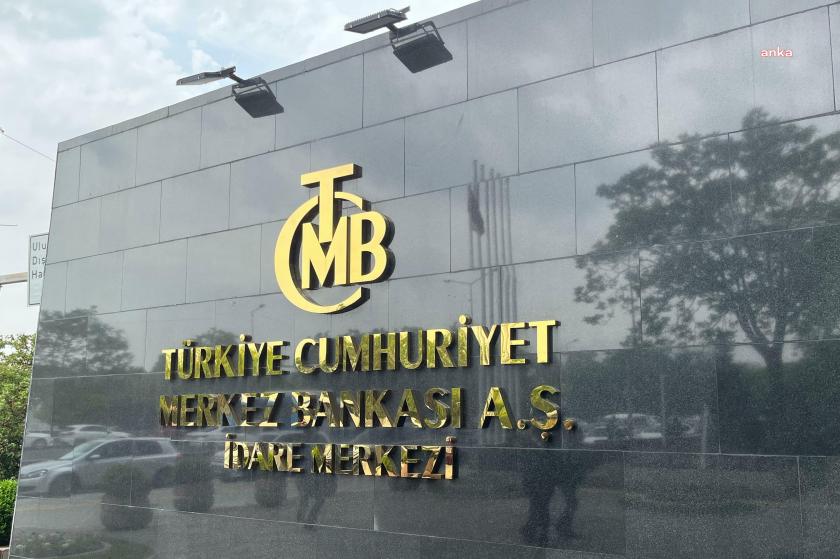US-Iran tension or the unending war!
Why does besieging Iran have such importance in terms of the US’s fight for hegemony in the region?

Görsel: Pixabay
It was enough for the New York Times (NYT) to report that the Trump administration, which for some time has been implementing a “strategy of besieging Iran,” will send 120,000 troops to the Middle East to counter Iran for tension in the region to rise. Even Trump’s remarks in denying the NYT, “"Now, would I do that? Absolutely. But we have not planned for that. (…) And if we did that, we'd send a hell of a lot more troops than that," reveal that even if such an intervention is impossible in the short term, it is not outside the bounds of probability in the long term.
Notably coinciding with the NYT report was news of sabotage of which Iran is accused – and Iran denies these accusations – targeting commercial tankers and ships in the vicinity of United Arab Emirates’ territorial waters. The UAE is known, along with Saudi Arabia, to be one of the fiercest proponents of the US policy of besieging Iran. On the other hand, news of sabotage has willy nilly turned attention to the Strait of Hormuz, which is used by countries like Saudi Arabia, the UAE, Qatar along with Iran, and through which one-third of the petrol transported by sea globally passes.
Following the sanctions imposed by the US aimed at restricting Iran’s petrol trade, the Iranian administration commented, “If Iran is restricted from using the Strait of Hormuz we’ll close the strait to passage” and the response this elicited from the US was, “If Iran closes the Strait of Hormuz we are prepared to use military force to protect petrol trading in the region.”
It is first necessary to stress that the impossibility of the US dispatching a fresh military force in the near term or of a military intervention does not alter the fact that tension will continue to mount in the region in conjunction with the strategy of besieging Iran and the hegemonic/distributional conflict in the region that defies conceptualization separately from this strategy.
So, why does besieging Iran have such importance in terms of the US’s fight for hegemony in the region?
To answer this question, there is a need briefly to remember/recall what has happened since 2011 in which the Syria war was started.
For, the Syria war did not just target the Syrian (Assad) regime. Overthrowing the Syrian regime would amount to besieging Iran and leaving the Lebanese Hezbollah bereft of support against Israel. More importantly, it would weaken Russia’s influence in the region and would in particular strengthen the US’s hand against its only rival in the Asia-Pacific, China, which is externally dependent to a large degree in energy terms. That is, the US’s hegemony, which had begun to weaken in both the region and the world, would be reinvigorated.
However, it is common knowledge that the war produced results contrary to this expectation. Iran has become an influential political and military actor not just in Syria and Lebanon, but in Iraq and Yemen. Russia did not restrict itself to sending military forces to Syria and preventing the Assad regime from falling, but has acquired new military bases and enhanced its power in the region.
Against this very background, besieging Iran is of decisive importance with regard to the hegemonic/distributional conflict in the region as a whole. Put differently, for the US, besieging Iran amounts to limiting the areas of influence of rivals like Russia and China and controlling the energy resources and transit routes in the region.
It must also be noted here that, in terms of the strategy of besieging Iran, the US is attaching priority to arming regional allies that see Iran as a major rival and threat as opposed to sending military forces that would impose scarcely bearable financial burdens. On this basis, Trump is known to have made a 350 billion dollar arms-military co-operation agreement with Saudi Arabian King Salman and also to be trying to establish a Sunni-Arab NATO, dubbed the “Middle Eastern Strategic Alliance,” led by Saudi Arabia that will also include Egypt and Jordan along with the Gulf countries.
Turkey also constitutes one of the most critical issues in the US strategy of besieging Iran because the US needs Turkey for this strategy to succeed. However, Turkey coming into confrontation with the US and cosying up to Russia following the priority the US attached to cooperation with the Kurds in Syria makes Turkey’s inclusion in this strategy difficult. Hence, for some time negotiations have been conducted between Turkey and the US over the creation of a “secure zone” to the east of the Euphrates (limiting the Kurds’ areas of power and influence).
We entitled the book I compiled with Ali Karataş to coincide with the anniversary of the 1916 Sykes-Picot Agreement “The Unending War-the Undistributable Middle East.” We said in the preface to the book, “When a part of the earth like the Middle East comes into play that is home to the world’s most important energy resources and its transit routes, war confronts us as an indispensable tool of this distributional conflict (…) For this reason, it will be no exaggeration to call the Middle East the venue of unending war.”*
Today Syria, tomorrow Iran… Until an anti-imperialist-democratic struggle for a future in which the peoples of this region can determine their own futures and live together in peace, unending war and distributional conflict between imperialists and collaborationist reactionaries will continue to be the fate of this corner of the earth.
(*) The Unending War-the Undistributable Middle East, Compilers: Ali Karataş-Yusuf Karataş, Evrensel Printing and Publishing, p.13.







Evrensel'i Takip Et